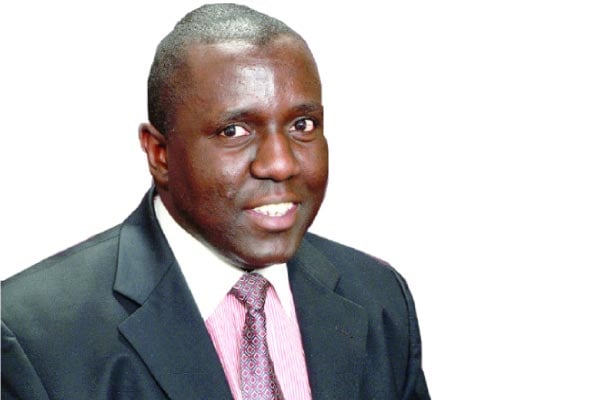Prime
Things thus fallen apart in FDC, NUP

Prof Timothy Wangusa
What you need to know:
- But why would I have ended with UPC in listing Uganda’s living, slumbering, dying, or dead parties? Answer: Because, alphabetically, that is its place – the last among the entire spectrum of all those parties that were active for at least five years before their demise.
Well, my esteemed readers and fellow perpetual explorers of the world through the agency of the Word: I could have very easily ended the above abridged list of Uganda’s historical and theatrical political parties with Uganda Peoples Congress (UPC), but as you will quickly realise – the said “UPC” and “etc.” rhyme perfectly! (Yuu-pii-si, Ii-tii-si.) And so “etc.” will serve our present purpose very well. Luckily, I hear you agreeing with me.
(I know there are pronunciation pundits who will quickly tell you that the two [UPC and etc.] are not “perfect” rhymes but “half” rhymes! That it is to say, that it is only the -PC and -TC that have a semblance of sounding similar - for enticing the ear? - but not so with the initial U standing for “Uganda” and the initial E standing for the Latin phrase “Et cetera” – which means, “And so forth…and all the rest of it… and that kind of thing”.
In other words, before and after the Forum for Democratic Change (FDC) of my opening paragraph, I could have gone on to assemble all the damped, decadent, or dead political parties of Uganda’s phenomenal and unprecedented last 38 years and still counting! But indeed I chose not to do that, preferring, rather, to “let sleeping dogs lie” and snore.
But why would I have ended with UPC in listing Uganda’s living, slumbering, dying, or dead parties? Answer: Because, alphabetically, that is its place – the last among the entire spectrum of all those parties that were active for at least five years before their demise.
And what is my proof of this? Answer: My proof is an exhaustive list of the abbreviated versions of the political parties that have performed their antics, tricks, or maladies upon Uganda’s theatrical stage for not less than five years, or are currently on the stage – a list which leaves out a party like UPM (Uganda Patriotic Movement), 1980-1984, with its only one MP (Crispus Kiyonga of Kasese) making it to Parliament, and party chairman Yoweri Museveni not making it there. The said parties are: ANT, CP, DP, FDC, KY, NUP, PLU, UNC, and UPC.
For the information of someone out there who needs updating, UNC of course stands for Uganda National Congress, Uganda’s oldest and defunct political party, founded in 1952 under the chairmanship of legendary Ignatius Kangave Musaazi. And PLU of course stands for the youthful and dynamic political party presently (i.e. as of March 2024) still taking shape, Patriotic League of Uganda, under the chairmanship of we-all-know-who.
But now let me proceed by pausing a question. Is it true or not true that “a house divided against itself cannot stand”? If the answer is that it is true, we can then safely ask: “Those current Ugandan houses called political parties, are they standing, leaning sideways, collapsing, disintegrating, or undergoing something else?”
As an illustration: let us envision a real, physical house inhabited by a husband president of one of the oldest of Uganda’s political parties and a wife Cabinet minister in the current government formed by the entity which (through a proxy called “the Okellos”) overthrew the husband’s ruling party. By which door does the party president exit to go perform his party’s duties, by which door re-enter from performing those duties?
And by which door does the Cabinet minister exit to go perform her ruling party government duties, by which door re-enter from performing those duties? And is their house standing, leaning sideways, or steadily shifting on its foundations towards assuming some other unforeseen shape?
How about those houses called DP, FDC, and NUP? DP’s warring halves are rooted in Kabusu-Rubaga and in the office of NRM’s minister of Justice. FDC’s warring halves are rooted in Najjanankumbi and on Katonga Road. NUP’s warring haves are rooted in Magere and in Masaka. Can a house divided against itself stand?
Prof Timothy Wangusa is a poet and novelist. [email protected]




